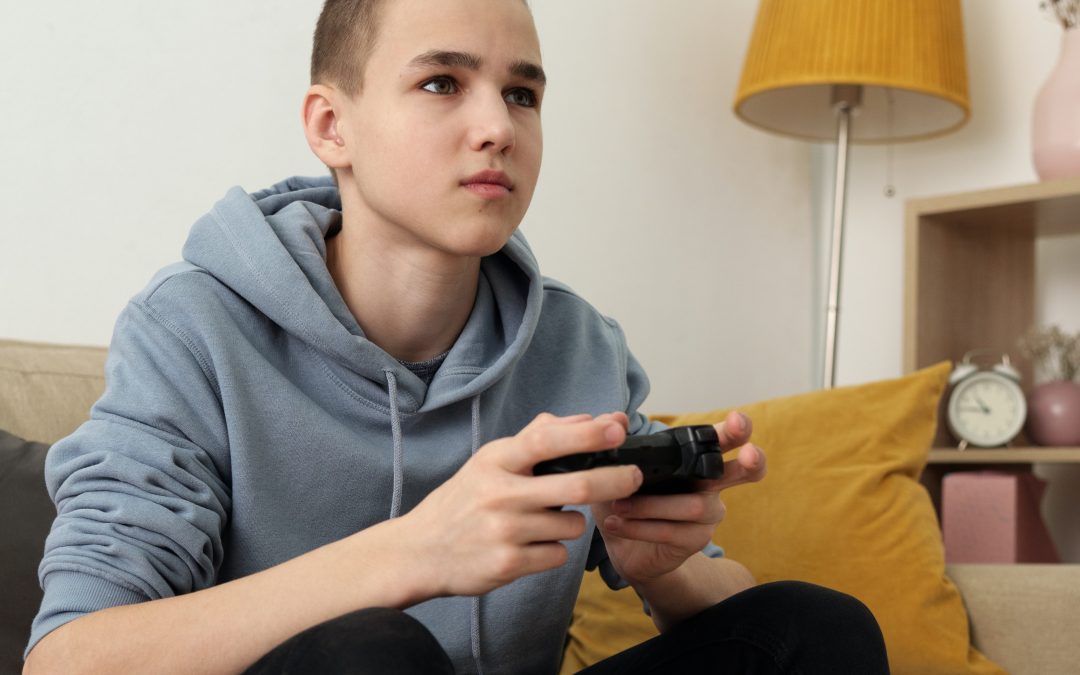A friend recently reminded me of the Dandelion and Orchid theory. While the majority of kids are believed to be dandelions (meaning they are better able to deal with stress), I think we can all recognize that some kids have a harder time dealing with their emotions particularly in stressful situations and environments. With all of the disruption and uncertainty we have collectively experienced in 2020, it is likely that our kids are feeling increased levels of stress and anxiety. Add to that computer-based home schooling (while parents are struggling to work – yikes!) it is not surprising that most kids are spending more time on the screen now more than ever.
So what can we do when our kids resist our efforts to pull them away from the screen? Here are a few tips that might help:
Slow your roll & collaborate: rather than confronting things head on, find an opportunity when the screen is not being used to discuss the concerns around the amount of time spent on the screen. Ask kids for their input to help come up with a strategy and plan around screen time use. Consider starting with a small goal that feels manageable and agreeable – like a 10% reduction, or perhaps allowing extra screen time as a reward.
Set an example: make a point of not looking at your devices when you are engaged with your kids. Not only does this set an example, but it also shows them you value them as people and the time you spend with them in a priority.
Be flexible: the best way to help our kids learn to be flexible and open to change, is to avoid power struggles and demonstrate consistency but not at the expense of the hear-and-now. There will be times when our flexibility will help to create greater trust and deeper bonds with our kids.
Inject fun: consider things your kids enjoy doing and make a point of finding the time to do those things together. With so much of our time dedicated to meeting deadlines and fulfilling responsibilities, it is important to remember to have some fun! Here are a couple simple ideas:
- Mealtime word games:
- Create a story together over breakfast where one person begins with “Once upon a” and each person adds a piece to create the context, scenario, characters, etc. It can be a lot of fun to hear the ridiculous creativity that might ensue!
- Meatball! If you haven’t played it, you’re missing out! It is like broken telephone but instead of repeating the same word, each person whispers a word that relates to the word heard to the next person at the table. The last person says their word out loud and then you go around the table to hear how each word connects. For example, if I whisper “syrup” to you, you might whisper “pancake” to the person next to you, and they might whisper “waffle” and the next person might whisper “uncertain”, then perhaps “foggy” would be next and so on, until the last person would say their word aloud – maybe “soup”. What? Then everyone explains their word choice. (Soup: foggy like pea soup, foggy: uncertain, uncertain:waffle… etc.) Any repeat words or words that are deemed to not connect get a loud “X/gong” from the group.
- 20 questions is always an easy go-to. For adults with young kids, it is always fun to be a bit ridiculous with your questions and guesses. Or take it to the next level with the interview game, where the interviewee has to guess who theyare based on the questions asked of them!
Establish consistent activities: a simple Saturday morning walk, Friday night games night, Sunday afternoon drive or bike ride – whatever it is, have a predictable activity that you do together away from the house or at least away from the screen when no one checks their devices
Whatever the approach you take, remember to be patient with yourself, your kids, and the process… change can take time and allowing extra screen time when life feels stressful is sometimes a better option than adding to the stress.
ADDITIONAL RESOURCES
For Children: A video that examines the pros and cons of video games for kids.
For Youth: Books to inspire reading in kids who love to play video games.
For Caregivers: 7 Ways to help wean your child off video games.
For Educators: A look at how to make the most of video games in schools by using them as an instructional tool rather than as supplemental material or as a reward when the “real work” has been accomplished.


Very much like your articles… Nicely written… But here are a couple of more ideas:
1. Have fun with words. Engage the child in word rhyming. Ask what he/she is watching, then come up with a silly rhyme and ask the child to rhyme back..You rhyme whatever the child says and challenge the child to continue the rhyme. .For example, child says, “I’m playing meatball” you respond, ‘will that make you tall?” Child comes back with “won’t make me fall” Then you switch to something else…. such as ask “What do yo want for lunch?” then rhyme the child’s response.
2. Any type of creative or physical activity: let’s go play soccer… or how ’bout building a sculpture out of all these wood chips? (lumber companies happily provide wood chips which can then be glued together and painted).